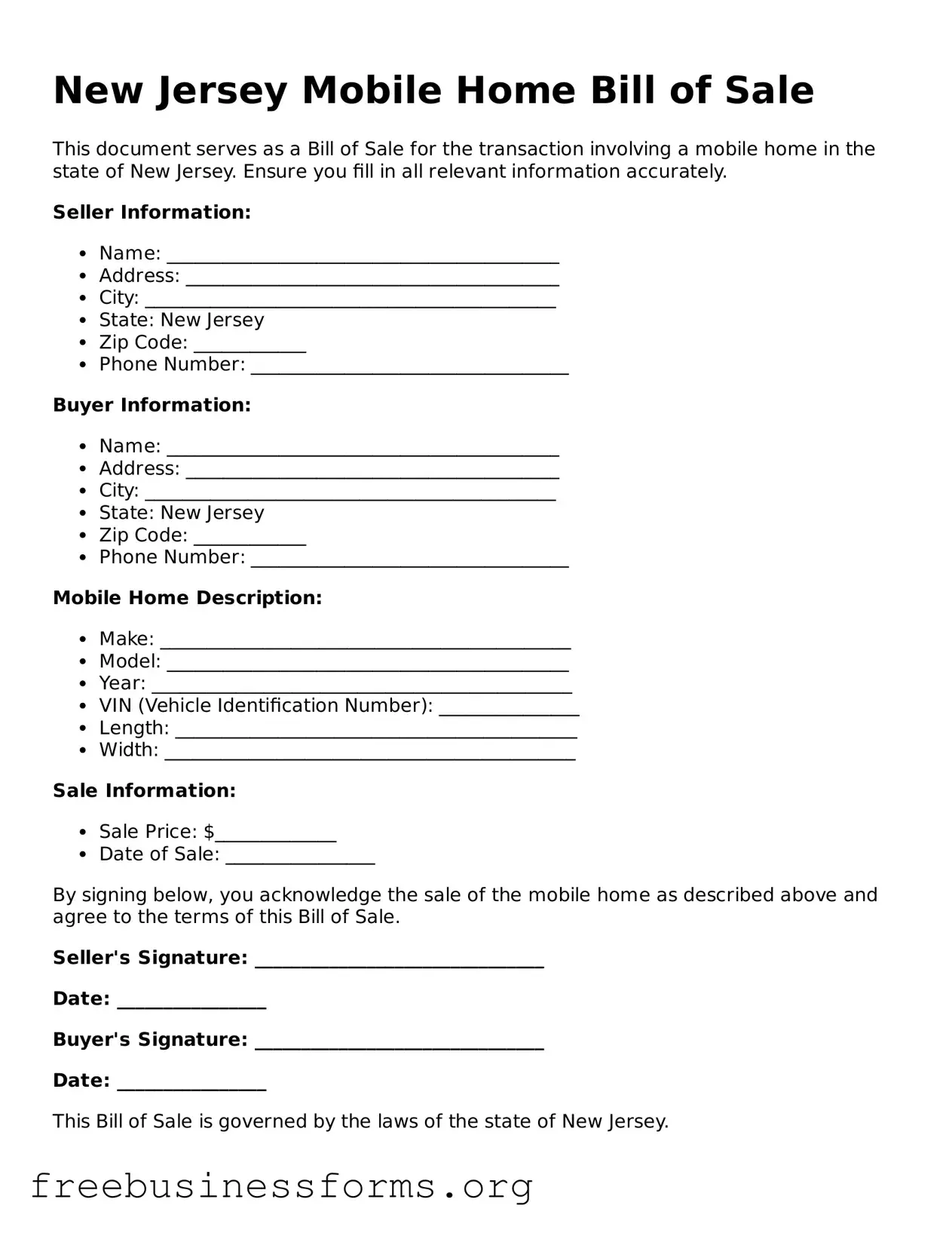Blank Mobile Home Bill of Sale Template for New Jersey
The New Jersey Mobile Home Bill of Sale form serves as a crucial document for individuals transferring ownership of a mobile home within the state. This form outlines the details of the transaction, ensuring both the buyer and seller have a clear understanding of the terms involved. By using this form, parties can protect their interests and facilitate a smooth transfer of ownership.
Open Form Here

Blank Mobile Home Bill of Sale Template for New Jersey
Open Form Here

Open Form Here
or
↓ PDF File
Quickly complete this form online
Complete your Mobile Home Bill of Sale online quickly — edit, save, download.